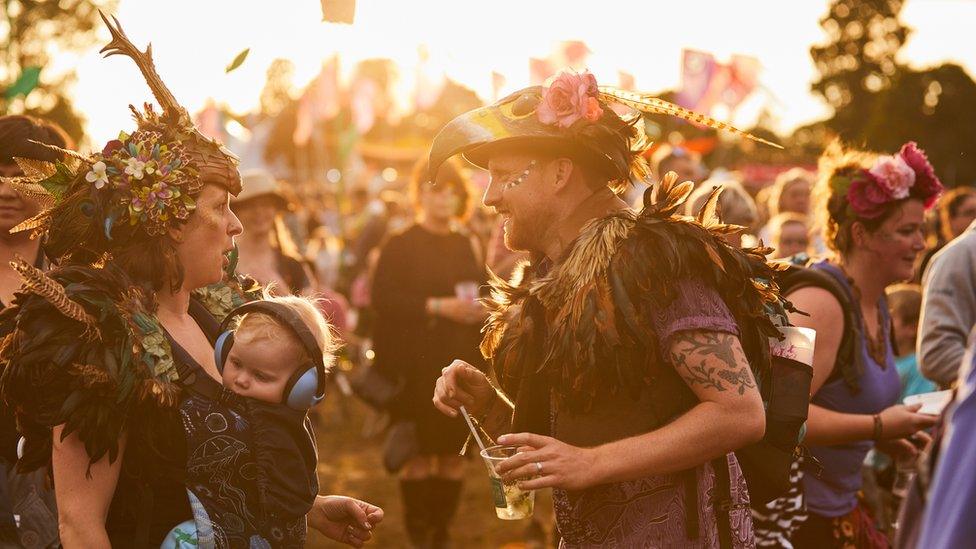Coronavirus: Is this a way of getting festivals going again?
- Published
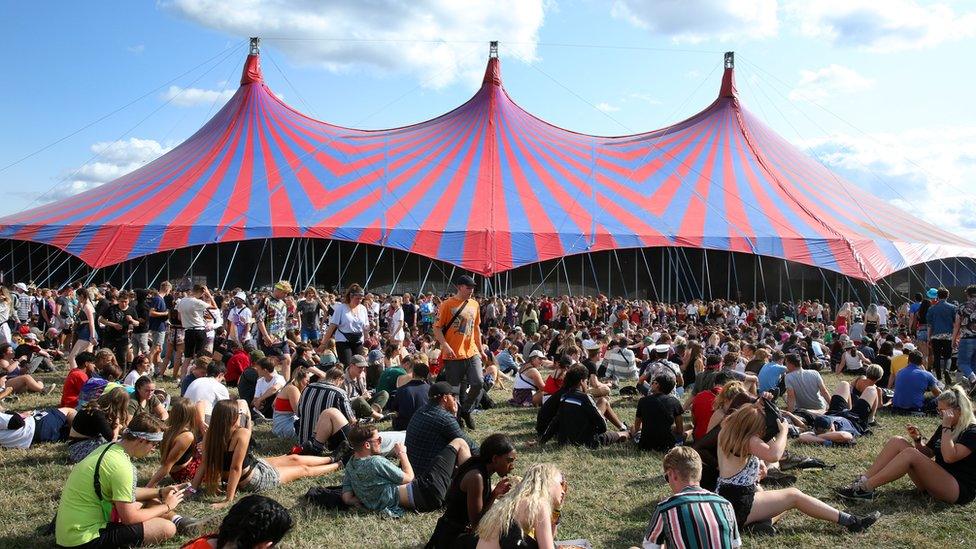
If you're missing festivals, the boss of Reading & Leeds and Wireless reckons he has a solution to make sure they go ahead "as normal" in 2021.
Melvin Benn, managing director of Festival Republic, wants to link his events with compulsory coronavirus testing.
Put simply, a negative Covid-19 test would be the key to getting you into a show.
However, his idea would need considerable buy-in from government and scientists.
He argues social distancing doesn't work at festivals as they need to be "full houses" in order to make them economically viable.
Without full capacity "it's impossible for us to operate our businesses," he tells Radio 1 Newsbeat.
Instead, coronavirus testing would act as a "personal incentive" for someone wanting to attend an event, and he's urging the government to adopt it.
At the minute, if you're not showing coronavirus symptoms you don't get a test, so guidelines, external would have to change to enable his plan.
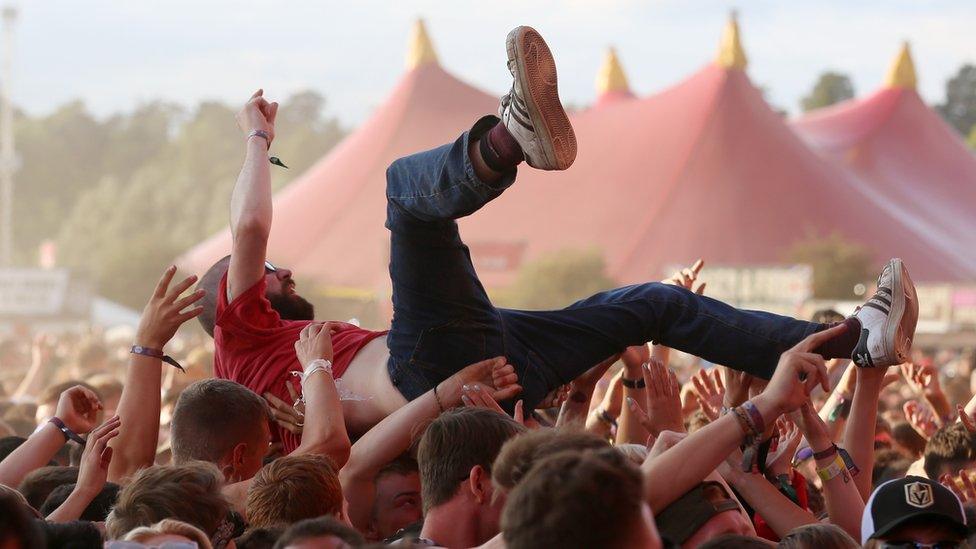
Crowdsurfing seems a world away right now
In England, external, current social distancing guidelines mean you must not gather in groups of more than six with people you do not live with, making events like festivals almost impossible in their current form.
In Scotland, external, public gatherings are still not permitted. In Wales, people from two different households are allowed to meet outdoors as long as they stay two metres apart and in Northern Ireland, groups of up to six people who do not live together can meet outdoors.
Despite the different guidelines, all four nations are in agreement that you currently need to remain two metres apart with people from outside your household.
Melvin Benn, who also heads up Latitude and Download, says "every single bit" of his turnover for 2020 has been cancelled and told Newsbeat: "It can't happen two years on the trot."
Under his plan, everybody attending an event will have been tested for Covid-19 "within either seven or 14 days" before the event or "whichever length of time ... the government determines is safe".
"With that incentive, I think people will be really happy to start being tested. At the moment there is no incentive."
On any kind of social distancing at large events, Melvin Benn says it's "completely and utterly bonkers" when you consider the atmosphere at raucous live gigs or the reaction to a goal at a football match.
But Dr Simon Clarke, Associate Professor in cellular microbiology at the University of Reading, warns that tests don't always pick up the virus in its early stages.
"We can't know for sure that when you've had a negative test for the virus, you will remain negative for any period of time after," he says.
"There's also a window between you being tested and going to the festival. You could pick the virus up then as well."
Coronavirus spreads when an infected person coughs small droplets - packed with the virus - into the air, meaning festivals would be a high risk environment for that to happen.
So what's his plan?
2020 has already been described as a "write-off" for live music and festivals.
Melvin's idea to get festivals (and other entertainment and sporting events) up and running again involves:
Customers who want to book an event being advised to get a test and download the NHS trace app.
The test is registered with the app, which then allows you to continue with your booking.
Whenever you get a negative test, the app notifies you that you're Covid-19 free and that becomes a virtual permission slip to attend the event.
You show your app and ticket at your event which allows you entry.
Local information about infection rates would be taken into consideration.
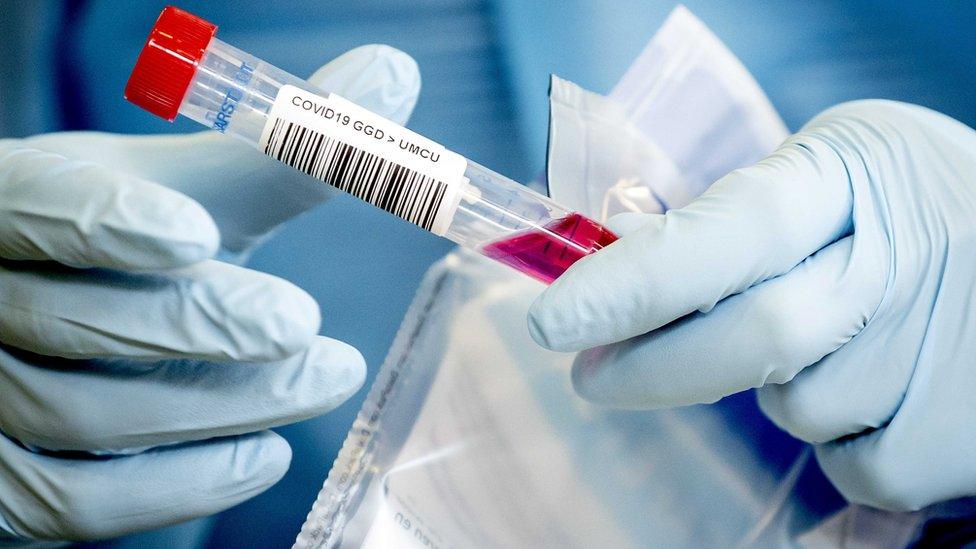
If you're showing symptoms, a coronavirus swab test tells you if you've got Covid-19
Melvin Benn doesn't plan to "contravene or subvert" the government's health position and says his idea would do "exactly the opposite".
"This is enhancing the amount of people that would be on the NHS app."
He says events would also have better hygiene procedures and temperature checks before you go in.
Currently, Festival Republic has had no formal talks with government and "there's no indication yet of a willingness to accept the plan".
The idea is in its infancy with no specific timings on any roll-out or estimate on costs.
"It's a tough shout but it's doable because there's an incentive to be tested," he says.
Trade body UK Music estimates the contribution of live music to the UK economy is set to to drop in 2020 from an estimated £1.1 billion to just £200 million.
But remember, 2021 is a still a long way off, as the search for a Covid-19 vaccine and better treatments continues.


Follow Newsbeat on Instagram, external, Facebook, external, Twitter, external and YouTube, external.
Listen to Newsbeat live at 12:45 and 17:45 weekdays - or listen back here.
- Published7 May 2020
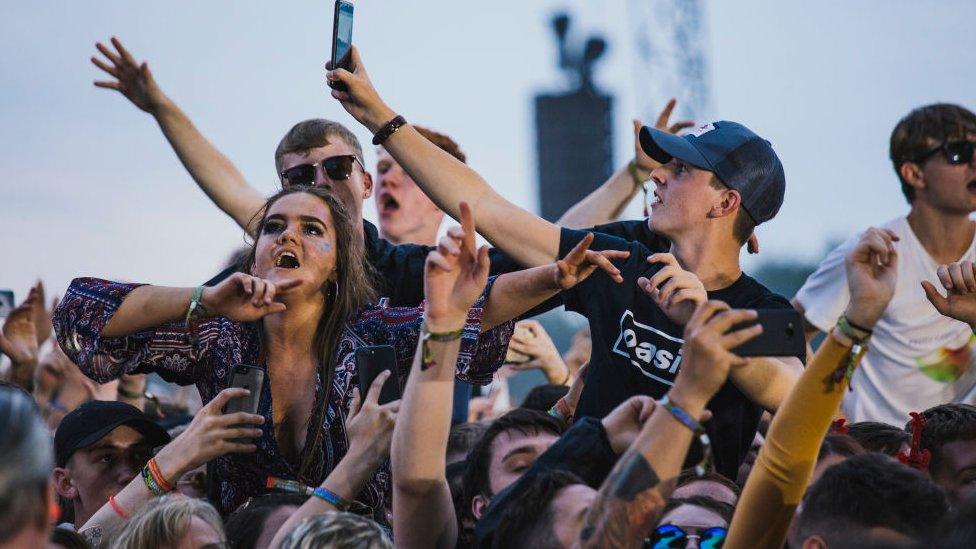
- Published21 April 2020
